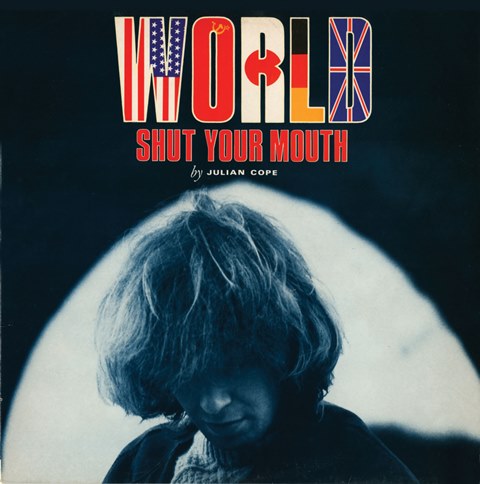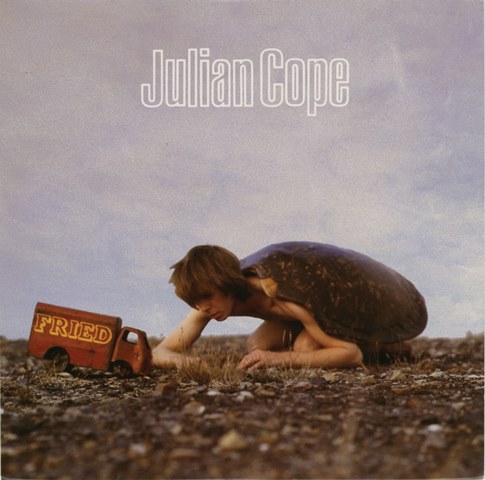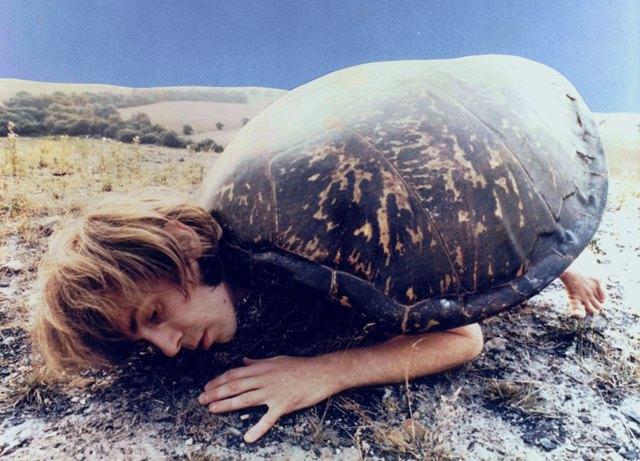 Julian Cope: World Shut Your Mouth, Fried
Julian Cope: World Shut Your Mouth, Fried
It’s a fair assumption Julian Cope’s record label Phonogram was committed to the idea that he could be a solo commercial and critical success. Teardrop Explodes, the band he had fronted, had charted and his face regularly featured in the new crop of glossy pop magazines. The announcement of the band’s split had come in November 1982, but it took another year for “Sunshine Playroom”, the first solo single, to emerge.
The record label’s faith was demonstrated by approving a £20,000 spend for the single’s promo video – it was the first that photographer David Bailey had directed. The result was blood-and-violence punctuated and had to be cut before it could be broadcast. The budget for the single stretched to hiring 24 string players and a 20-piece brass section for its arrangement, written by Elton John collaborator Paul Buckmaster. “Sunshine Playroom”, though, was a fragmented and hyper portmanteau piece in the vein of Jimmy Webb’s “MacArthur Park”. Cope's comeback charted for one week, at number 64. Artistically, it was exceptional. Commercially, it was not.
The reissue of Cope’s first two solo albums brings into sharp focus that his relationship with the mainstream was brittle from the moment “Sunshine Playroom” was issued as a trailer for the first. But despite the tensions, there was no artistic decline. Both were issued in 1984: World Shut Your Mouth in February, Fried in November. The second cost £19,000 to complete – less than that video budget. Copious non-album tracks were issued on singles during 1984, and there were contemporaneous radio sessions. The two reissues gather all these tracks to re-render each album as a double CD set. The liner notes are by former Teardrop Explodes and Cope publicist Mick Houghton, who was there at the time. The pin-sharp mastering highlights the brittle, treble-heavy sound of the original recordings.
 While the bonuses of each package fill out the picture of Cope’s 1984, both albums stand on their own as a coherent statement. Happily, all the extra tracks are collected on a pair of second discs, so as not to dilute the impact of the album itself.
While the bonuses of each package fill out the picture of Cope’s 1984, both albums stand on their own as a coherent statement. Happily, all the extra tracks are collected on a pair of second discs, so as not to dilute the impact of the album itself.
Heard now, World Shut Your Mouth and Fried don’t sound particularly unconventional. Yet Cope, as Houghton notes, was portrayed in the contemporary music press as “the clown prince of psychedelia”. In the NME, Paul Morley said: “If genius is pain, Julian Cope spends all his time hitting himself on the head with a wooden tray so that he hurts.” Licence for such potshots was fostered by the cover of Fried, a photo of a naked Cope under a turtle shell in front of a toy truck with a wheel missing. The album’s title was seen on the side of the toy. Cope himself was, therefore, fried and, like the truck, broken and going nowhere. In some ways, of course, the press reaction to the solo Cope was a self-fulfilling prophecy. By choosing this as the cover image, Cope played into his detractors’ hands. But the naysayers were not listening to the records.
Each album is crammed with memorable tunes which support incisive, self-aware lyrics. World Shut Your Mouth – the album's title was later co-opted by Cope for a post-Phonogram single – opens with “Bandy’s First Jump", a joyful stomp as good as anything Teardrop Explodes recorded. On “Elegant Chaos” Cope sings “I was happy for a while, but the joke is over.” He'd become the pop-slanted Kevin Ayers he had always threatened to be. The lower-budget Fried is equally reflective and, again, tempers a downbeat mood with fantastic tunes and humour too: the bleak, hymnal and Nico-ish album closer “Torpedo” is about the delivery of a vital message and just may, obliquely, be about his penis as well.
Julian Cope did not fulfil Phonogram’s expectations. The label let him go in summer 1985 and he subsequently signed with Island. After that, his path was and still is his own. These energised, singular, wilful first post-Teardrop Explodes releases are central to the story of Britain’s mid-Eighties pop landscape and there is no excuse not to get them.















Add comment